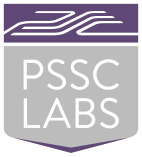Many organizations are adopting cloud-native approaches based on Kubernetes for application development to support digital transformation efforts and to accommodate the rapid development and deployment times needed to stay competitive today. But what about on premise kubernetes?
At the heart of most efforts is a micro-services architecture. In the past, programs were monolithic, meaning even a small change required extensive reprogramming and recompiling. In contrast, modern applications are built using loosely coupled components and services. In this way, aspects of a larger application can be added, modified, or updated without impacting the rest of the application. For example, a financial services firm may enhance its fraud detection capabilities by adding an artificial intelligence-based real-time anomaly detection to existing practices.
Proof of the success of such an approach to application development and deployment is seen in the rapid adoption rate of containers, in general, and Kubernetes, in particular. Businesses are well beyond the experimental and investigative stages. An industry survey by the Cloud Native Computing Foundation (CNCF) in 2019, 84% of respondents were using containers in production, a jump of more than 15% from 2018. The use of Kubernetes has surged in that time. In 2019, 78% of respondents were using Kubernetes in production, a huge jump from 58% the year before.
While most container deployments are on public cloud services, about 42% of businesses also are deploying containers on-premises and on private clouds. Two factors are driving the use of Kubernetes on-premises.
Driving Factors For the Use of On-Premise Kubernetes
First, Kubernetes helps on-premises data centers realize the benefits of cloud-native applications and infrastructure. Thus, a business can have a cloud-like environment that abstracts infrastructure away from the application stack. Just as is the case in a public cloud, this abstraction enables portability and the scalability that’s commonly associated with cloud-native applications.
Second, employing on premise kubernetes verses on a public cloud lets a business enforce security and data protection policies.
On-premises Solutions Options
Running container workloads comes down to hardware. Businesses need physical machines, with CPUs, memory, and local persistent storage. In addition, they need some shared persistent storage and networking element to hook up all the machines.
Kubernetes can be deployed on a bare-metal cluster or a cluster of virtual machines. Bare-metal instances are not as common. However, there are use cases where they offer advantages. For example, a network edge application might be too latency-sensitive to tolerate the overhead created by a VM. Or an application (such as machine learning) might need to run on GPUs or other hardware accelerators, which do not lend themselves to VMs.
A suitable system must be able to be dynamically provisioned by the users to handle different data workflows. Many businesses are looking for turnkey solutions that combine the needed processing, storage, memory, and interconnect technologies to provide either the bare metal or VM foundation for their container and microservices efforts.
Delivering such a solution requires expertise and real-world best practices across both HPC and container/Kubernetes domains, plus deep industry knowledge about the specific applications.
PSSC Labs has a more than 30 years history of delivering systems that meet the most demanding workloads across industries, government, and academia.
Its offerings include PowerServe Uniti Servers, which use the newest components from Intel® , AMD® and Nvidia®. These servers are ideal for a wide range of applications, including AI and deep learning, as well as for computational and data analysis.
PSSC Labs also offers CloudOOP Big Data Servers that deliver the highest level of performance in an enterprise server with the cost-effectiveness of direct attach storage for Big Data applications. The servers deliver 200+ MB/sec sustained IO speeds per hard drive (which is 30%+ faster than other OEMs.)
While containers and Kubernetes on public clouds make sense for development and application testing, the use of the technologies brings many benefits when run on premise kubernetes. Data centers gain the efficiencies of cloud-like operations. And businesses have more control over security for production applications. PSSC Labs systems for Kubernetes can help a business realize both benefits.

